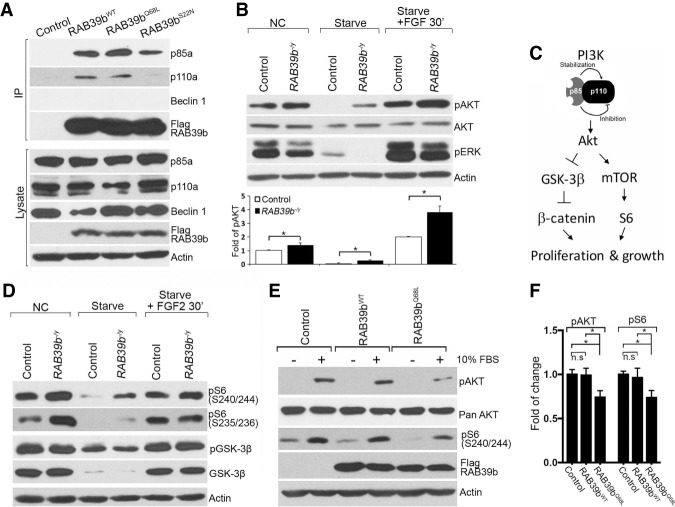Figure 7.
RAB39b regulates PI3K–AKT–mTOR signaling. (A) Coimmunoprecipitation (co-IP) analysis revealed that WT (Rab39bWT), constitutively active (Rab39bQ68L), and dominant-negative (Rab39bS22N) Rab39b interact with p85α and p110α in N2A cells. (B) Western blot analysis showed that RAB39b deletion increases the pAKT signaling activity in mutant human NPCs in normal culture (NC), under starvation conditions, and in response to FGF stimulation conditions. (C) Diagram of the PI3K-AKT downstream GSK-3β and mTOR signaling pathways. (D) RAB39b deletion results in the up-regulation of mTOR signaling, reflected by increased pS6 (S240/244) and pS6 (S235/236) expression levels in human NPCs in normal culture (NC), under starvation conditions and in response to FGF stimulation conditions. (E) The constitutively active RAB39bQ68L decreases pAKT and pS6 (S240/244) expression levels in human NPCs. Actin serves as the loading controls. (F) Quantification of pAKT and pS6 (S240/244) expression levels in experiment E. Error bars represent SEM of results from three independent experiments. Statistical analyses were performed with nonparametric Mann-Whitney tests. (*) P < 0.05; (n.s) no significant difference detected.

